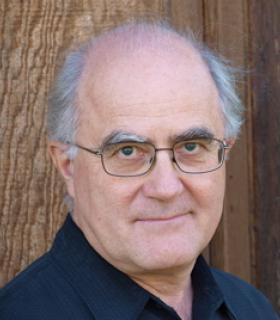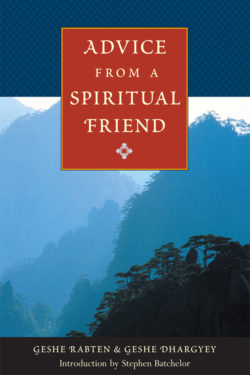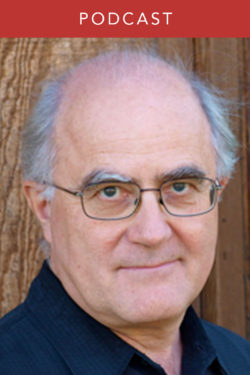Stephen Batchelor

Stephen Batchelor has studied in Buddhist monasteries in India, Switzerland, and Korea. An accomplished writer and photographer, he has translated, written, and contributed to many books about Buddhism including After Buddhism, Buddhism Without Beliefs, Verses from the Center, and The Tibet Guide. He lives in the South of France.
Books, Courses & Podcasts
Advice from a Spiritual Friend
“Do not wish for gratitude.
Never strike at the heart.
Now if you die, you will have no regrets.”
—The Seven-Point Thought Transformation
Like wise old friends, two Tibetan masters offer down-to-earth advice for cultivating compassion, wisdom, and happiness in every situation. Based on practical Buddhist verses on “thought training” (lojong), Advice from a Spiritual Friend teaches how to develop the inner skills that lead to contentment by responding to everyday difficulties with patience and joy.
Following Stephen Batchelor’s introduction to the Kadamapa tradition that gave rise to these earthy, pithy instructions, Part One is a commentary by Geshe Dhargyey to Atisha’s (982-1054) Jewel Rosary of a Bodhisattva. Part Two includes a commentary by Geshe Rabten to the famous Seven-Point Thought Transformation.
First published in 1977, Advice from a Spiritual Friend is a Wisdom classic that has enriched readers in many editions over the years. As Batchelor says in his introduction, “These teachings are as applicable today as they were when Atisha first introduced them to Tibet.”
Read the biographies of Chekawa Yeshe Dorje and Atisha at the Treasury of Lives.
Stephen Batchelor: After Buddhism
This Wisdom Podcast episode features Stephen Batchelor, renowned Buddhist author, teacher, and proponent of secular Buddhism. Batchelor tells us of his coming of age in the 1960s counterculture—listening to bands like Pink Floyd, reading Herman Hesse and Alan Watts, and being inspired to visit India, traveling there overland from France in 1972.
He then shares how he began studying Buddhism at the Library of Tibetan Works and Archives in Dharamsala, in the presence of the Dalai Lama and Geshe Ngawang Dhargyey, and living amongst Tibetan refuges. We hear what the Buddhist scene was like for Western “seekers” in India and Nepal in the early 1970s, and Batchelor’s experience practicing with Geshe Rabten. Batchelor describes his experience as a monastic and how he reached a point of crisis in his Tibetan Buddhist training when it came to believing certain fundamental doctrines.
He then tells us how he learned vipassana meditation from S.N. Goenka and began developing his own view of Buddhism, also inspired by Aristotle’s concept of flourishing. Next we hear how he practiced as a Zen monk in South Korea for three years, and what he found uniquely helpful in the Zen tradition. Batchelor and host Daniel Aitken also discuss classical Greek philosophy in tandem with Buddhism philosophy, analyzing several interesting parallels. Batchelor then shares his thoughts on secular Buddhism: defining the word “secular,” the social responsibility that secular Buddhism implies, and his vision of what secular Buddhism has to offer the world.


